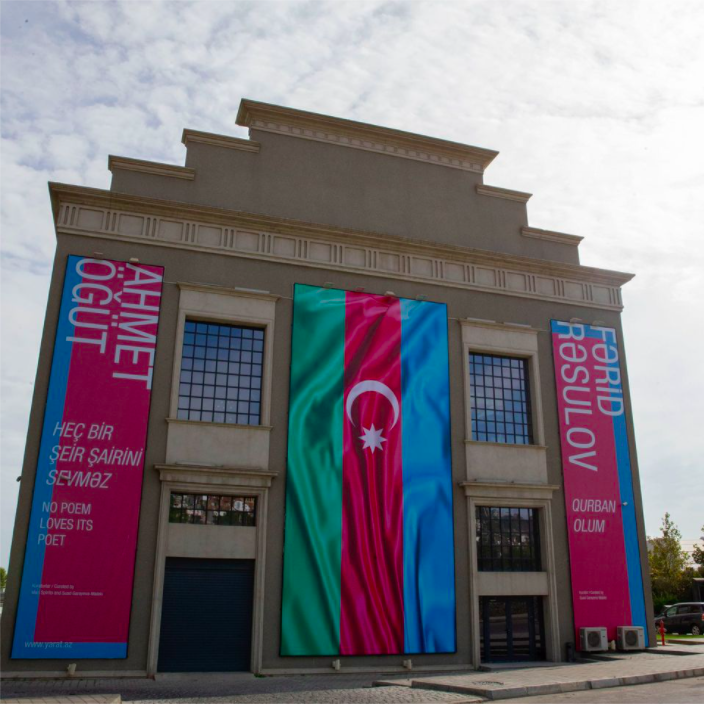
Turkish artist Ahmet Ögüt has withdrawn a solo exhibition of his work from the Yarat Contemporary Art Space in Baku, Azerbaijan, after the museum tied it in social media posts to the ongoing war in the disputed region of Nagorno-Karabakh.
Earlier this month, Yarat published a photo of its facade on Instagram and Facebook in which the sign advertising the artist’s exhibition, “No Poem Loves Its Poet,” was paired with a matching banner that read: “Everything for the homeland! Karabakh is Azerbaijan.”
Karabakh, which is recognized by the United Nations as belonging to Azerbaijan, is currently occupied by forces from Armenia, as a long-simmering conflict between the two countries over the disputed territory boils over. Since September, both countries have violated cease-fires in the conflict, and thousands from both sides have been killed.
“I have become aware that the banner of my exhibition is being used as a propaganda tool in social media along with politically motivated statements that have nothing to do with my independent vision or the content of my exhibition,” Ögüt wrote in a public letter shared Wednesday.
“As the institution has regrettably rejected my requests to take down the exhibition banner with my name appearing next to the Azerbaijani national flag on the facade of its building, and the photo thereof on its social media sites, I have no other option but to demand the immediate closure of my exhibition,” said the artist, who was born in Turkey and works between Amsterdam and Berlin. “I refuse to allow my work to fall prey to political instrumentalization.”
Soon after the Ögüt sent out his statement on October 28, Yarat changed the exhibition details on its website to say that the show was over, the artist Tells Artnet News over email. His works were removed from view that same day, but they remain on the premises.
Yarat did not respond to Artnet News’s request for comment, but the institution confirmed to Art Asia Pacific that, as of October 29, the exhibition has been removed from view.
Ögüt’s exhibition included two site-specific video and sculptural installations commissioned for the occasion. The titular work, Hiçbir şiir, şairini sevmez (No poem loves its poet), which was named for a piece of graffiti Ögüt came across in a historic neighborhood in Baku, features footage shot across the capital city and is a reflection on gentrification.
Responding to the political conditions of a host city is characteristic of Ögüt’s work.
“During my career as an artist, I have worked many times in conflicted areas and have responded to the local situation with nuanced and challenging artworks,” he added in his statement.
On view since March, the show was supposed to run through November 20. Ögüt did not immediately respond to a request for comment.